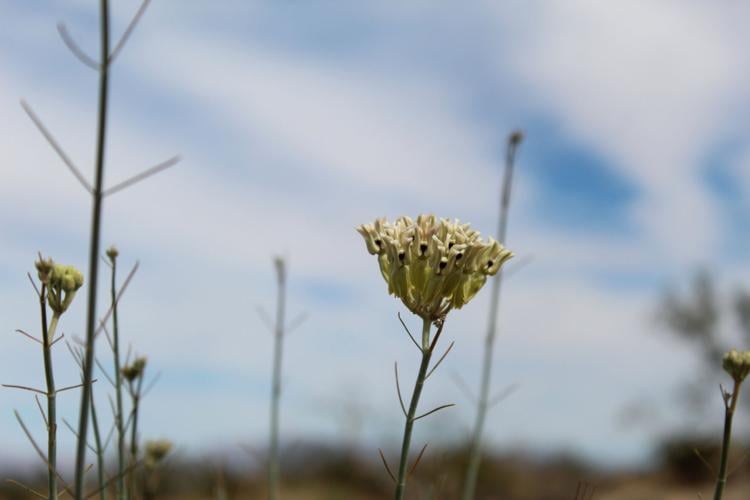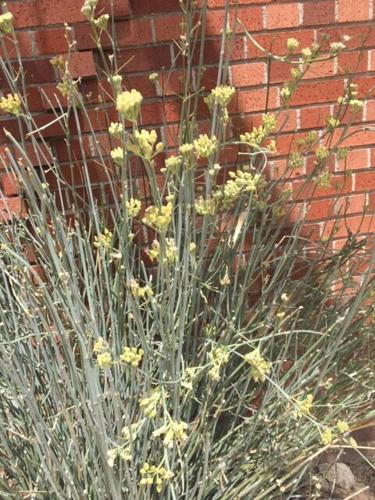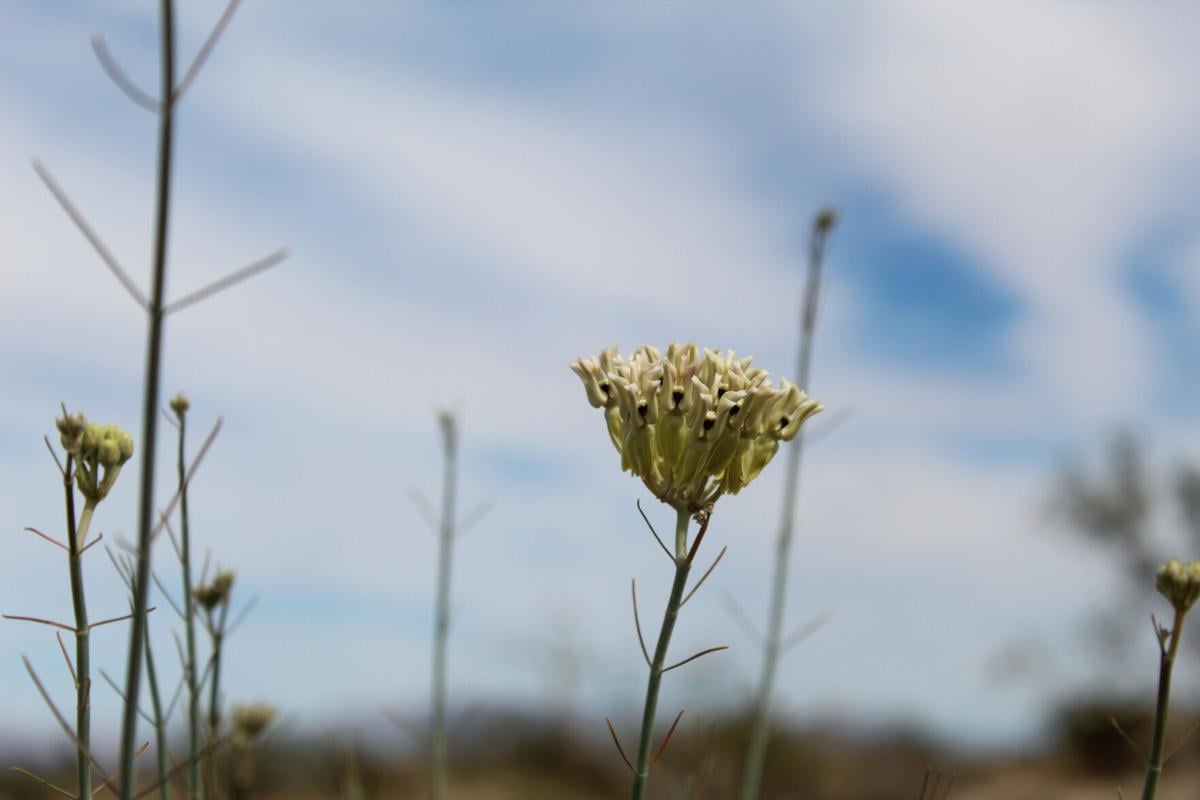Desert milkweed, also called rush milkweed (Asclepias subulata) is a native perennial milkweed that’s great for attracting monarch butterflies and requires very little care. In fact, it thrives on neglect and can be killed by overwatering.
The plant has an interesting architectural shape, with tall, narrow, sage-green stems with whitish pink flowers at the tips. It is thornless, and produces essentially no litter, making it a great plant for narrow spaces near traffic areas. It also tolerates reflected heat, so it can be planted along walls and driveways and near hardscaping.

Desert milkweed (or rush milkweed) has tall spiky gray stems and large white flowers. It can grow up to 4 feet tall and thrives in full sun with very little water.
It can reach 4 feet in height and spread is usually around 2 feet. It naturally grows in sandy and rocky dry soils, so it doesn’t require any amendments. It likes full sun and once established shouldn’t need any supplemental watering. It is cold tolerant to around 18 F so it can be grown in a variety of harsh climates. It does require well-draining soils, and will not be happy if overwatered or kept moist. The plant may produce solitary narrow leaves after summer rains. The fruit pods break open to release seeds with white fluffy plumes.
As with any milkweed, the white sap is toxic to many animals, including dogs, cats and horses, and can be a skin irritant, so wear gloves and long sleeves when planting or pruning. The insects that feed off the milkweed are not affected by the toxin, but birds are, so the plant provides the insects with a form of protection against being eaten. Monarch caterpillars will feed on this plant and may munch it almost down to the ground, but don't worry, it will grow back. If you see them, great news — they’re right where they need to be.






